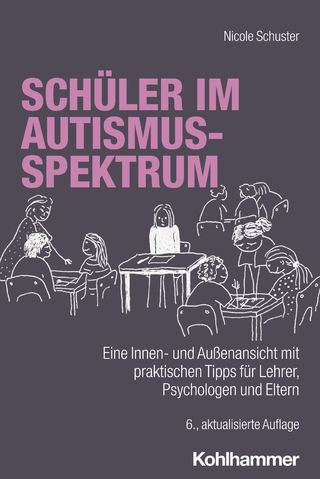
The Cambridge Handbook of Personal Relationships
Cambridge University Press (Verlag)
978-1-107-13026-5 (ISBN)
With the field of personal relationships having grown dramatically in the past quarter century, The Cambridge Handbook of Personal Relationships, Second Edition serves as a benchmark of the current state of scholarship, synthesizing the extant theoretical and empirical literature, tracing its historical roots, and making recommendations for future directions. Written by internationally known experts from key disciplines, the Handbook addresses both fundamental questions and cutting-edge concerns. This second edition has been thoroughly updated to reflect recent developments in analytical techniques, shifts in theoretical emphases, and an increased attention to social processes. New chapters include the Neuroscience of Salutary Close Relationships; Self-Disclosure in Relationships; Acceptance, Rejection, and the Quest for Relational Value; Relationships and Physical Health; Personal Relationships and Technology in the Digital Age; and Promoting Healthy Relationships. This compendium of state-of-the-art research and theory on personal relationships will be of great value to researchers, graduate students, and practitioners.
Anita L. Vangelisti is the Jesse H. Jones Centennial Professor of Communication at the University of Texas, Austin. She was co-editor of the Cambridge University Press book series on Advances in Personal Relationships and has served on the editorial boards of over a dozen scholarly journals. Vangelisti served as President and is a Fellow of the International Association for Relationship Research and is a Distinguished Scholar of the National Communication Association. Daniel Perlman is a Professor of Family Studies at the University of North Carolina, Greensboro. Having trained as a social psychologist, he has taught at the Universities of Manitoba and British Columbia, been president of four academic associations including the International Society for the Study of Personal Relationships and the International Association for Relationship Research, and been editor or co-editor of four journals including Personal Relationships and the Journal of Social and Personal Relationships. For over fifty years he has found daily joy in being a close relationships researcher and academic.
Personal relationships: an introduction; Part I. Foundations for Studying Relationships: 1. The seven seas of the study of personal relationships research: historical and recent currents; 2. What is good and what is missing in relationship theory and research; 3. Navigating methodological trade-offs in close relationships research; 4. Analyzing cross-sectional and longitudinal data in close relationships; 5. Relationship typologies; Part II. Developmental Arc of Relationships: 6. Relationship initiation and growth; 7. The affective structure of marriage over time; 8. Divorce and post-divorce relationships; Part III. Relationships across the Lifespan: 9. Friendships in childhood; 10. Personal relationships in adolescence and early adulthood; 11. Close relationships in middle and late adulthood; Part IV. Individual Differences: 12. Personality in close relationships; 13. Attachment theory as a framework for studying relationship dynamics and functioning; 14. Gender and relationships; 15. The intimate relationships of sexual and gender minorities; Part V. Basic Processes: 16. Neuroscience of salutary close relationships; 17. Social cognition in romantic relationships; 18. Communication: basic properties and their relevance to relationship research; 19. The Roles of emotion in relationships; Part VI. Interactive Processes: 20. Self-disclosure in relationships: revealing and concealing information about oneself to others; 21. Social support in close relationships; 22. Understanding couple conflict; 23. Sexuality in personal relationships; Part VII. Threats to Relationships: 24. Lying and deception in close relationships; 25. Stress, dyadic coping, and social support: moving toward integration; 26. The universal threat and temptation of extradyadic affairs; 27. Aggression and violence in romantic relationships; 28. Acceptance, rejection, and the quest for relational value; 29. New ways of theorizing and conducting research in the field of loneliness and social isolation; Part VIII. Relational Quality: 30. Romantic love; 31. Relationship satisfaction; 32. Commitment processes in personal relationships; 33. Relationships and physical health; Part IX. Context: 34. Social networks and personal relationships; 35. Personal relationships and technology in the digital age; 36. Ethnicity, culture, and close relationships; Part X. Maintenance and Repair of Relationships: 37. Promoting healthy relationships; 38. Maintaining relationships; 39. Treating relationship distress; Part XI. Conclusion: 40. Whither relationship science? The state of the science and an agenda for moving forward.
| Erscheinungsdatum | 12.08.2018 |
|---|---|
| Reihe/Serie | Cambridge Handbooks in Psychology |
| Zusatzinfo | 18 Tables, black and white; 1 Maps; 2 Halftones, black and white; 14 Line drawings, black and white |
| Verlagsort | Cambridge |
| Sprache | englisch |
| Maße | 222 x 287 mm |
| Gewicht | 1850 g |
| Themenwelt | Geisteswissenschaften ► Psychologie ► Familien- / Systemische Therapie |
| Geisteswissenschaften ► Psychologie ► Sozialpsychologie | |
| Sozialwissenschaften ► Soziologie ► Mikrosoziologie | |
| ISBN-10 | 1-107-13026-3 / 1107130263 |
| ISBN-13 | 978-1-107-13026-5 / 9781107130265 |
| Zustand | Neuware |
| Haben Sie eine Frage zum Produkt? |
aus dem Bereich


